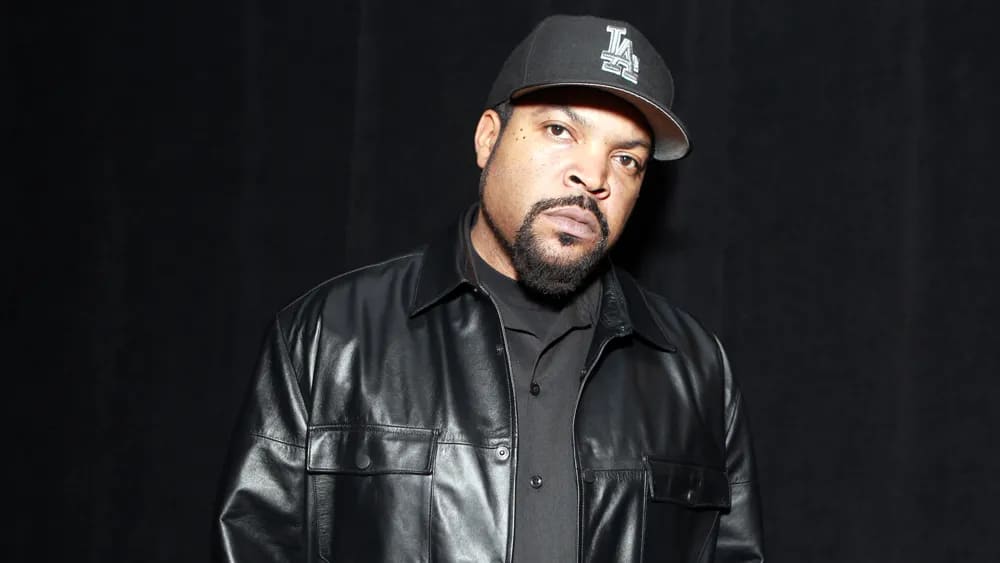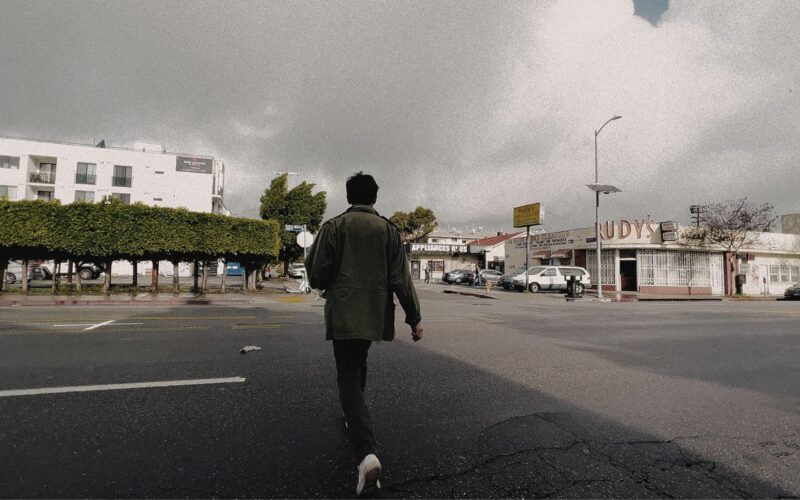JOHN is a social drama directed by Le Han in his feature film debut. Produced by Joseph Hieu, known for producing ‘The Accidental Getaway Driver’, an acclaimed feature at Sundance Film Fesitval, the film chronicles the life of a queer Latino male sex worker living in the poorest part of Los Angeles. Searing and poignant, the film depicts the hardship that LGBTQ+ sex workers face daily, told in a slice-of-life narrative.
The film centers around John (Sebastian Perez), a down-on-his-luck young prostitute operating on the streets of West Hollywood, LA. The bushy tailed John comes under the wings of two older prostitutes: the slimy Miguel (Seth Hafley) and the kind-hearted Peaches (Celine Jackson), who is trans. We watch John go about his days, meet various clients and in general just try to endure life. Via his harrowing experiences, we see what sex workers struggle with daily: poverty, drug habit, HIV, violence.
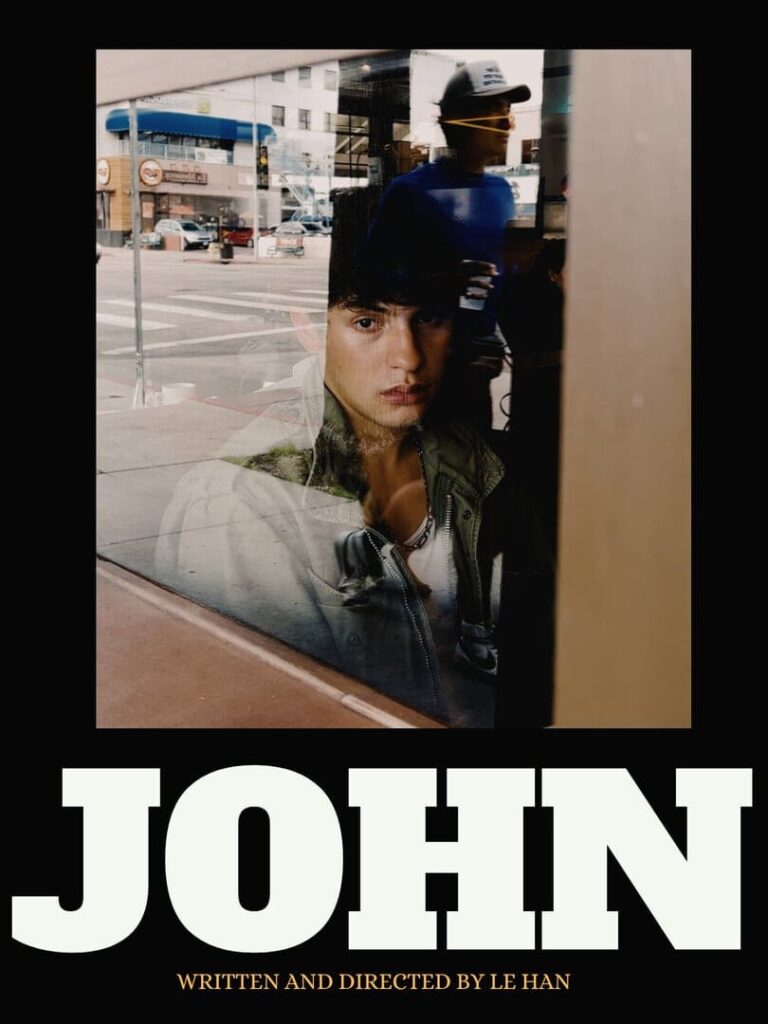
The film casts add a layer of authenticity to the story. The neorealism-inspired decision lends the film a documentary-like quality. The performances do feel a bit raw at times, but that’s probably the point: it has to feel awkward, like a regular person being on camera for the very first time.
Among the supporting players, Jackson stands out with her sassy but heartfelt performance. Peaches and John develop a close friendship that borders between maternal and romantic. Their close bond manifests in some of the film’s realest moments. An interesting symbolism of note: John almost always finds Peaches under a bright storefront or in front of a neon-lit graffiti. It’s as if she’s the source of light in his dark existence. As the most sprightly presence in the film, Peaches is often shown dancing in the street with abandon, shaking off the problems of the world. Her scenes provide moments of respite from the bleakness of the film. In a way, she symbolizes beauty amid the ugliness of reality, resilience in times of tribulations.
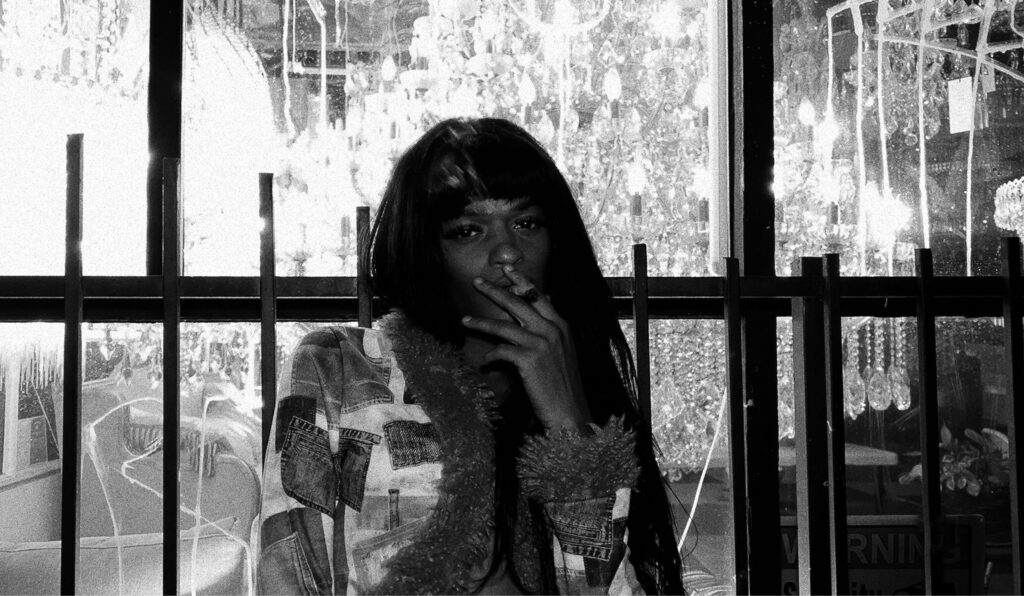
John’s assorted clientele also steal the scenes with their kinks and uniqueness. In one poignant scene, John meets a client who pays him just to talk. A closeted gay man, he admits to John his remorse for passing laws that disadvantage gay people. Another client is a failed actor in his twilight, dishing out the many dark sides of show business like a grandpa telling stories to his grandson. Despite the unusual nature of the situations, there are some really genuine and poignant insights from the conversations. It’s human moments like these that stick with you, the complex dynamics of beaten-down people desperately reaching out to one another for comfort.
The visuals of the movie are gorgeous in a rugged way. This film was made with just one Iphone. It gives it a look like it was shot almost like a vlog, with shaky cams and the sound of the streets bleeding through the dialogues. Shot in grimy locations all over LA, the film accurately captures the seedy underbelly of LA and the desolation felt by the characters stuck in there. The cinematography is at once moody and garish, very rock video-esque. With great use of lighting, every frame pops in vivid colors: harsh neon lamps against Peaches’ colorful hair and makeup, the brightness of carnival rides against John’s lone shadow – the contrasting hues serve as an irony to the bleakness of the story.
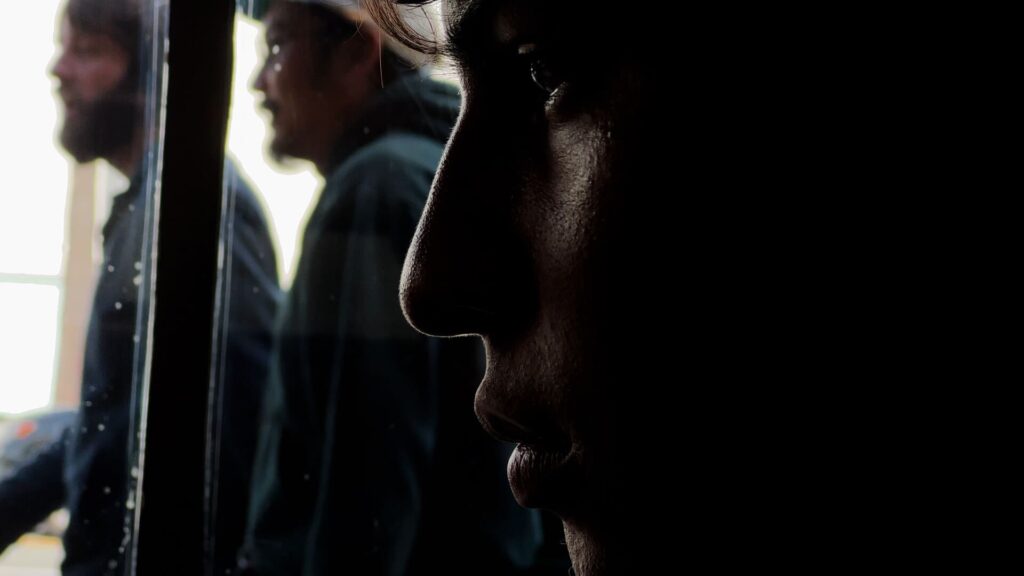
The structure abandons traditional narrative form. There’s no defined plot points building to a climax whatsoever. Instead, it’s snapshots of John’s life: from his mundane morning routines to the punishing hustle. It’s never building up to a certain goal for John, who’s just operating on auto-pilot, living life just to survive. We never get John’s backstory, but one thing is clear: he’s just a young man trying to survive in a cruel world. He’s rarely shown to be devastated. His eyes empty, here’s a man just gamely taking it in day by day. It’s an all-too-real circumstance faced by sex workers, who often find themselves stuck in this way of life with very little opportunity for social mobility.
Amid these harrowing scenarios, the rare “happy” moments feel even more precious. Like when John gets to buy groceries instead of shoplifting like he did at the beginning of the film. It’s heart piercing to watch his cherubic face light up like a kid as he picks up milk and snacks without needing to skulk around, underscoring just how rare this is for him. In another memorable scene and a moment of solidarity between the sex workers, a group of male prostitutes engage in a conversation discussing their profession just as casually as other business owners would, even going so far as teaching each other new tricks to perform to customers. This is probably the most hilarious moment that proves how they are just like us, people who chat about work in their downtime. Ultimately, despite what they’re dealt in life, these people manage to find happiness in the smallest things.
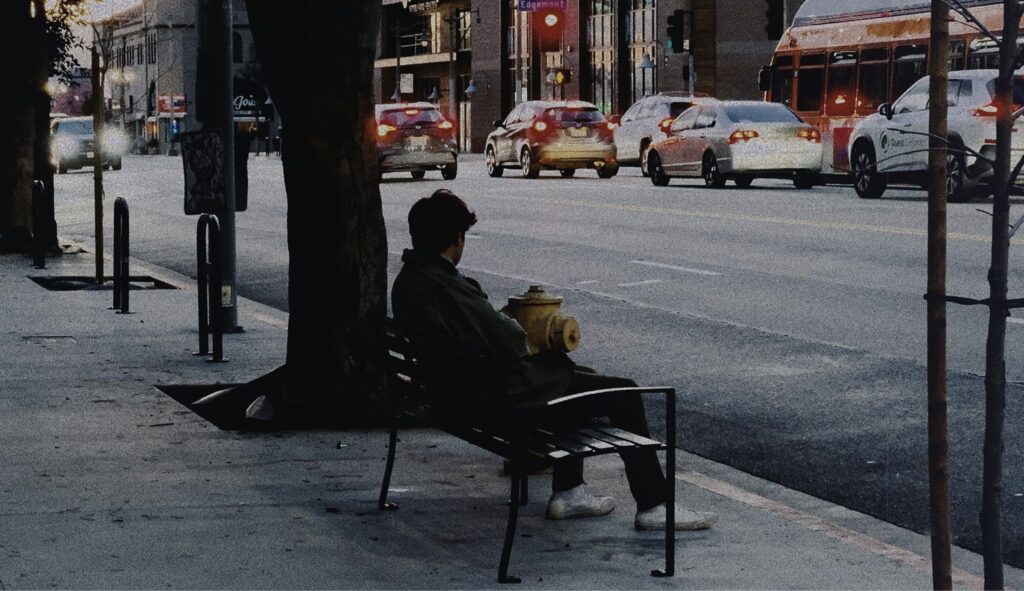
The film calls to mind Tangerine, the 2015 film about sex workers that famously was shot entirely on an iPhone. Both films move with the same raw, kinetic energy that can only be drawn from untrained performers. Likewise, both are films rife with social commentary. Its portrayal of the seedy underbelly of LA and its inhabitants highlights the plight of LGBTQ+ sex workers in the city: from poverty, homelessness, violence, drug use, to the threat of HIV-AIDS. But it’s not just the prostitutes; through the conversations John had with his patrons, the movie also reveals the struggles that the gay community still faces, be it in the government or in the entertainment space. Although the film never resolves any of the issues raised, one might find the honest confessions really cathartic.
Ever gritty and unrelenting, JOHN does a great job of telling a tragic story without resorting to melodrama or sentimentality. Ultimately it is an experimental film that specifically never tries to be eloquent nor refined. By doing so, it captures the coarse texture of its subject matter, the ugliness and the somberness. Imperfection is the name of the game, and the film embraces it proudly.
ABOUT THE DIRECTOR

Le Han was born in Ho Chi Minh city, Vietnam. He is an independent writer and director that currently reside in Los Angeles, California. He graduated with the Master Degree of Design from Raffles College of Design and Commerce in Sydney, Australia in 2012. A huge fan of cinema and classic literature, he loves to write stories with complex characters and compelling plot twist, along with a touch of philosophical theme.



